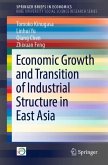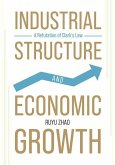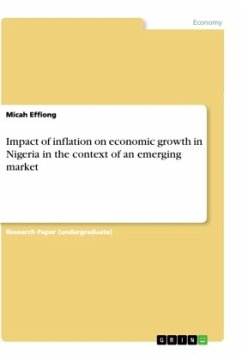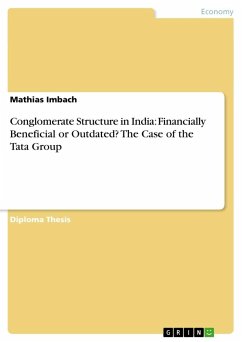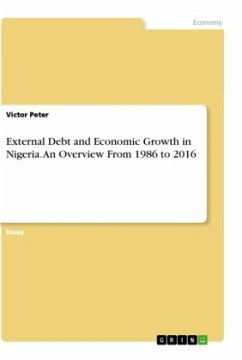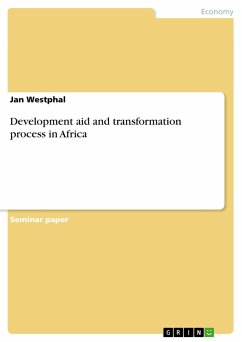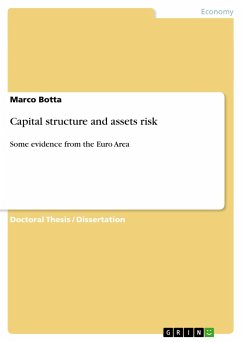Master's Thesis from the year 2010 in the subject Economics - Economic Cycle and Growth, grade: M.Phil/PhD, University of Ibadan, course: Economis, language: English, abstract: This study examined the relationship between tax structure and economic growth in Nigeria using annual data between 1970 to 2007. The motivation is to track the impact of the observed change in the tax structure on economic growth in order to inform policy. Two tax structures namely pre Value Added Tax (VAT) and post VAT were identified and their impacts evaluated.The empirical analysis was anchored on the endogenous growth theoretical framework which allowed for linking tax structures to growth. Econometric models were then developed to explore the relationship between the identified tax structures and economic growth. The first model present a growth equation with average tax rate variable, while the second model is where the specific tax variables were included alongside variables in the first model. The third, fourth and fifth models were used to test the robustness of the second model. This was accomplished basically by introducing additional variables. Prior to the empirical estimations, the standard tests of unit root and co-integration analysis were conducted to ascertain the appropriate estimation procedure and technique(s) to use. The unit root test show that all the variables of the models are stationary at the first difference, while the co-integration analysis indicates that one model out of the five models had no co-integrating relationship, while the rest had co integrating relationships. On the basis of these tests results, the model for which we found no co-integrating relationship was estimated using the Vector Auto Regression (VAR) technique while the others with co-integrating relationship were estimated via the Error Correction Modeling (ECM) technique. Further to this, the Granger Causality test was also conducted to ascertain the direction of causality among the variables of the model.The estimated results show that in the first model, average tax bears insignificant relationship with growth rate of real GDP. Likewise, following the introduction of specific tax variables in the modeling, average tax rate and other tax variables were not significant in the determination of economic growth in Nigeria. The results obtained from robustness check models indicate that the signs and significance levels of the tax variables varied with other policy variables that are applied in conjunction with the tax variables. [...]
Hinweis: Dieser Artikel kann nur an eine deutsche Lieferadresse ausgeliefert werden.
Hinweis: Dieser Artikel kann nur an eine deutsche Lieferadresse ausgeliefert werden.


